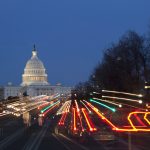The following guest post from Robert R. Sachs, Partner at Fenwick & West LLP, first appeared on the Bilski Blog, and it is reposted here with permission.
By Robert R. Sachs
 In late July, the USPTO issued its July 2015 Update to the 2014 Interim Section 101 Patent Eligibility Guidance (IEG). Read more
In late July, the USPTO issued its July 2015 Update to the 2014 Interim Section 101 Patent Eligibility Guidance (IEG). Read more
 In the last two weeks, the House and Senate Judiciary Committees marked up wide-ranging patent legislation ostensibly aimed at combating frivolous litigation by so-called “patent trolls.” But while the stated purpose of the House and Senate bills—H.R. 9 (the “
In the last two weeks, the House and Senate Judiciary Committees marked up wide-ranging patent legislation ostensibly aimed at combating frivolous litigation by so-called “patent trolls.” But while the stated purpose of the House and Senate bills—H.R. 9 (the “